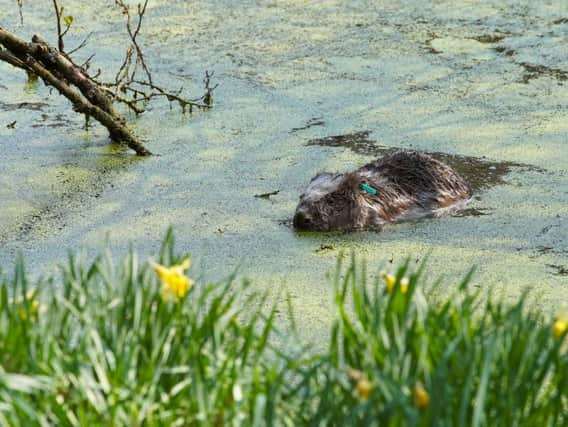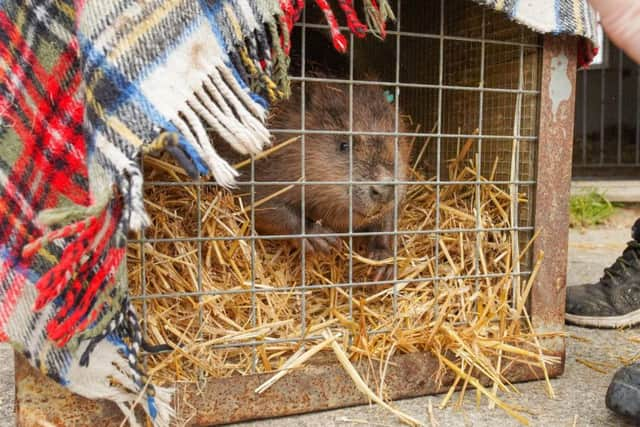Beavers released in Cropton Forest as pioneering UK trial gets underway


The creatures have been brought to the 10-hectare Cropton Forest near Pickering from Scotland to test whether their activity complements existing flood management measures.
Over the next five years, Forestry England will assess their impact on the long-term sustainability and maintenance of artificial wooden dams which have been built in order to protect nearby homes and businesses from flooding by slowing the flow of water.
Advertisement
Hide AdAdvertisement
Hide AdThe study is the first in the UK to examine the effects of beavers on artificial dams and it is being assisted by Forest Research, Exeter University and beaver experts Dr Roisin Campbell-Palmer and Derek Gow.


Wildlife surveys will take place annually to check what impact the beavers have on other animal and plant species.
Alan Eves, regional forest management director at Forestry England, said: “We are looking forward to seeing the beavers settle into their new home and are very interested to watch how they impact on the water flow and surrounding ecology.”
Cath Bashforth, a regional ecologist for Forestry England, added that Cropton Forest was an ideal site for the beavers to be released in as it offers plenty of food and water along 824 metres of beck and around the two old ornamental fish ponds.
Advertisement
Hide AdAdvertisement
Hide Ad"The habitat is a combination of broadleaves and conifers. There is a lot of willow scrub and young birch woodland with open areas to provide summer grazing for the beavers," she said.
“Beavers are natural habitat engineers, restoring complex wetland habitats and providing habitat for declining species whilst slowing the flow of water downstream.
"We are delighted to welcome beavers to Cropton Forest and are keen to observe the many benefits they should bring to local communities and the wider environment.”